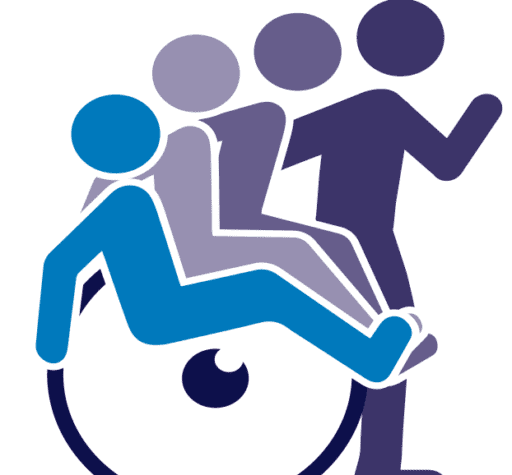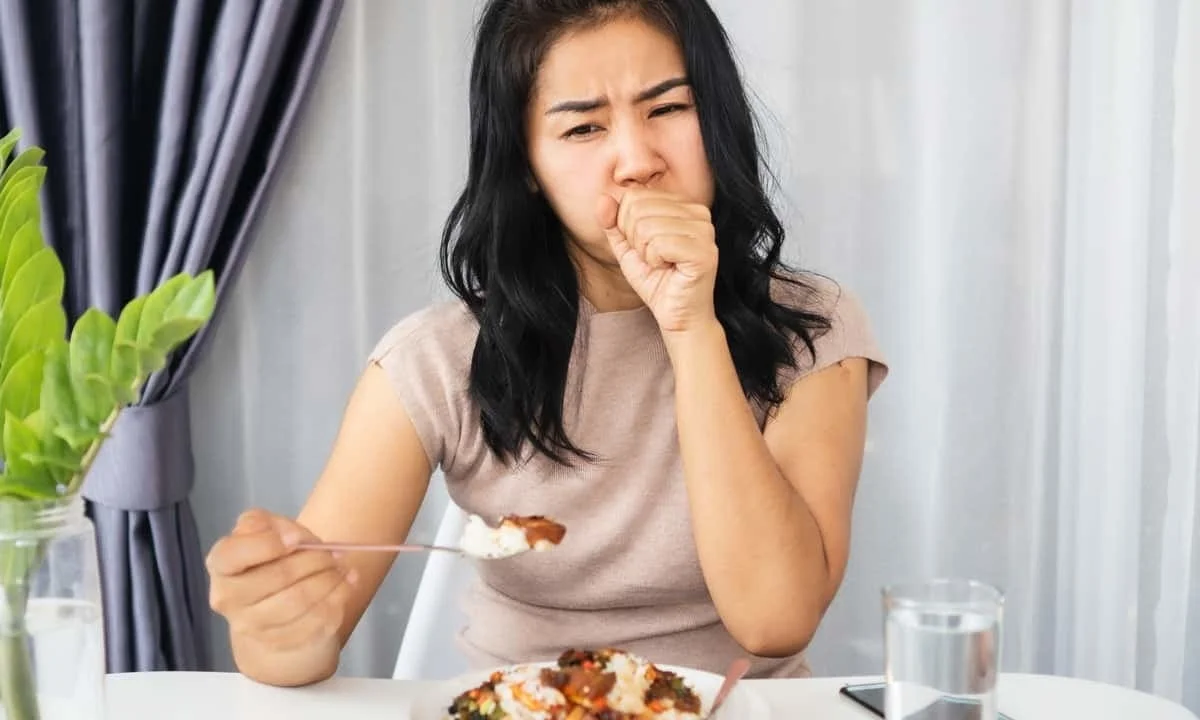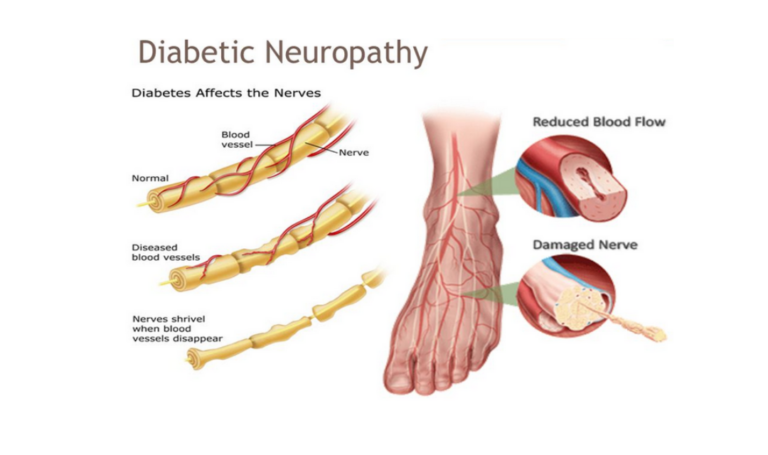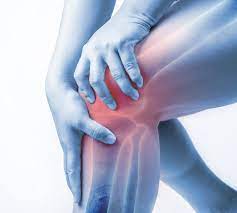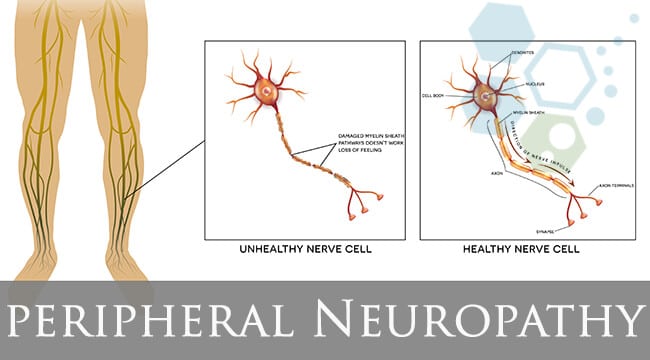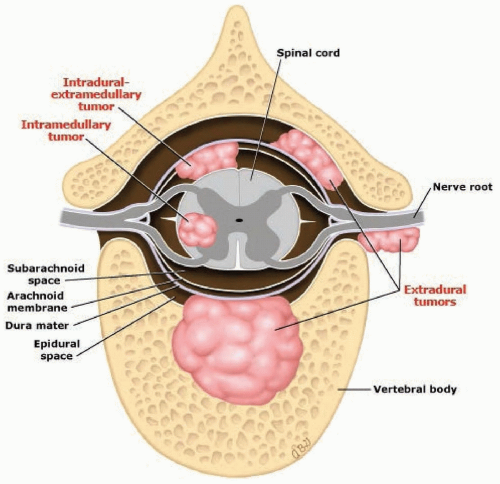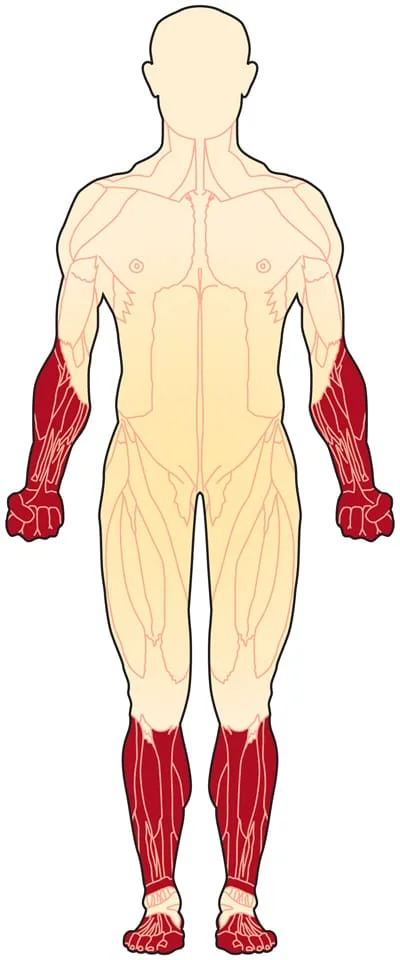Stomach Pain After Eating Pasta
Table of Contents
Do you have Stomach Pain after Eating Pasta?
Although there is never a good time to have stomach pain, it is particularly unpleasant right after eating pasta,
Food allergies are actually relatively uncommon in adults, despite what you may believe to be in that case. It may take some time to identify the precise foods that are hurting you, so it’s crucial to discuss your eating patterns and any symptoms connected to food with a physician. Determine the best strategy for you by consulting a registered dietitian or your physician.
You guessed it: dyspepsia, which is essentially just a fancy word for indigestion, is one of the most common causes of stomach pain after eating. Dyspepsia is characterized by bloating, feelings of fullness after eating, and abdominal pain.
Although indigestion usually goes away on its own, your stomach may hurt after eating due to an underlying condition.
Do you often have stomach pains after eating well? It might be worthwhile to investigate if any of these health problems is the cause.
Some ingredients in pasta may aggravate certain medical conditions, including stomach pain. Eating pasta may trigger an allergic reaction if you have a known food allergy. Pasta made in part with eggs, wheat, and soy may increase intestinal inflammation and make your stomach ache. Celiac disease, or gluten intolerance, can also cause stomach pain after consuming pasta. Gluten is a wheat protein that is present in most pasta. Pasta consumption causes a variety of digestive reactions in those who are gluten intolerant.
Causes
Food Allergy
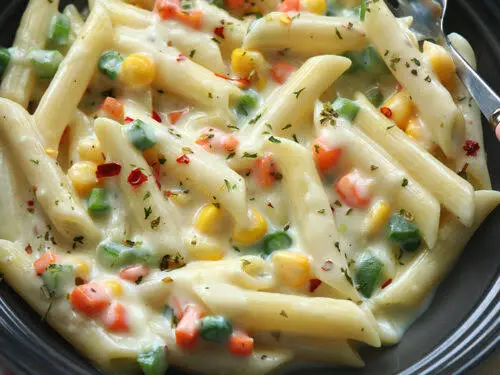
Pasta can cause an allergic reaction if you have a food allergy. Pasta recipes frequently contain wheat, soy, eggs, and dairy products that trigger allergies. Prior to eating any pasta that you may have a clinically diagnosed allergy to, make sure you read the ingredients on the box. Lawmakers mandate that pasta producers reveal the use of any ingredients that the government deems to be common allergens. In addition to stomach pain, you may experience other symptoms like nasal congestion, hives, or asthma if the reaction is linked to a food allergy.
Gluten Intolerance
Gluten is present in pasta unless it is marked as “gluten-free.” If you have celiac disease, even a small amount of pasta can result in severe stomach pain and other symptoms.
When you eat gluten-containing products, your immune system targets the lining of your small intestine, which results in this digestive disorder.
Doctors are unsure of the reason behind this immune system phenomenon. If you have gluten sensitivity, you must avoid gluten for the sake of your long-term digestive health.
Pasta Sauce
Pasta is commonly served with sauces. 2 ingredients in pasta sauces can cause
Pain is tomatoes and dairy. Red sauces are made from tomatoes, which can cause an allergic reaction in public.
Due to lactose intolerance or an allergic response, sauces containing milk or cream may make you feel sick to your stomach.
Lactose intolerance is a digestive defect that causes stomach cramping, pain, bloats, gas, and diarrhoea after taking dairy products.
Nausea vomiting and diarrhoea are symptoms of a stomach and intestinal infection called gastroenteritis. Food poisoning is another common cause of food-related gastroenteritis, e.g., stomach pain after eating tomato sauce.
Food allergies do not actually cause an infection, but they can have symptoms that are similar to gastroenteritis. Pasta sauces have the potential to cause allergic reactions because they contain milk, fish, and tomatoes. You should consult your doctor to find out the reason for your symptoms if you experience stomach pain after consuming pasta sauce.
Gastroesophageal reflux disease (GERD)
You have gastroesophageal reflux disease (GERD), this condition develops when stomach acid irritates the lining of your oesophagus, resulting in heartburn and stomach pain.
Overeating or a love of spicy foods increases your risk of developing gastric reflux disease (GERD). This is because acid reflux causes stomach acid to flow up into your oesophagus, which can be extremely painful.
If you believe you may have gastric reflux disease (GERD), reduce your intake of alcohol, caffeine, and spicy foods. You can also take over-the-counter antacids to help manage your symptoms. Contact your physician if that doesn’t work any better.
Irritable bowel syndrome (IBS)
The intestinal disorder can manifest itself in a variety of ways, including stomach pain, gas, diarrhoea, and constipation, but it can most definitely cause stomach pain after eating pasta. It’s a good idea to see your doctor and get tested for IBS if you have persistent pain in your stomach after eating and constipation or diarrhoea.
Celiac disease
An immune response to gluten consumption is celiac disease, which can have a variety of effects on those who have it. One is stomach pain following a gluten meal. FYI: While mild gluten intolerance (a condition in which your body has trouble digesting gluten) can cause stomach pain, it is not the same as celiac disease.
In cases of celiac disease, eating gluten damages the small intestine of the affected person; in cases of gluten intolerance, the affected person may only experience physical symptoms like gas or diarrhoea. You can work with your doctor to identify potential causes of the issue.
Ulcer
An ulcer may be the cause of persistent pain you experience after eating, along with other symptoms like weight loss, anaemia, vomiting, difficulty swallowing, or blood in your stool. You should definitely consult a doctor about this as ulcers, which are sores that form in the lining of your stomach, small intestine, or oesophagus, are typically treated with medications that reduce acid production and, in certain situations, antibiotics.
Gastroparesis
It’s also referred to as a “slow stomach,” which causes partial paralysis of the stomach muscles and impairs healthy digestion. This keeps food in your stomach for a longer period of time. Consequently, the inability of your stomach to process and assimilate additional food leads to stomach pain and/or spasms. Moreover, nausea or vomiting are possible.
The majority of cases are spontaneous and typically follow a bacterial or viral infection of the stomach. However, a recent COVID-19 infection has also been connected to gastroparesis.
You should eat smaller, more frequent meals if you have this condition because it facilitates the passage of food out of your stomach. Additionally, you might want to steer clear of foods high in fibre, like oranges, broccoli, beets, and celery, and opt for well-cooked fruits and vegetables rather than raw ones. Additionally, your doctor might recommend drugs to ease the resulting nausea and contract the muscles in your stomach.
Small intestinal bacterial overgrowth (SIBO)
Happens when your small intestine contains an excessive amount of bacteria. The good bacteria required for digestion are overwhelmed when there are too many bad bacteria. Poor digestion can result in bloating, diarrhoea, and pain in the abdomen after meals.
Elderly age, previous abdominal surgery, autoimmune diseases, or persistent constipation are risk factors for SIBO.
If you think you may have SIBO, advise consulting a gastroenterologist. Treatment involves using antibiotics to get rid of the overgrowth of bacteria and making dietary adjustments.
Gallbladder disease
Gallbladder disease is particularly common in women in their 40s and refers to a variety of conditions that cause pain in the upper-right quadrant of your abdomen as well as around your back.
Fat stimulates the gallbladder, which is why greasy meals (think: fried foods, cheese, sausage, potato chips, and butter) can cause mild to severe abdominal pain. Severe pain can also be brought on by gallstone-induced inflammation that obstructs the ducts leading to your small intestine. Intense stomach pain that wakes you up in the middle of the night is typically an indication that your gallbladder may be having problems.
Usually, gallbladder problems don’t go away on their own, so you should consult your doctor right away if you experience persistent or frequent stomach pain after eating or other worrisome symptoms. In more severe cases, they might recommend surgery to remove the gallbladder in addition to prescribing medication to relieve the pain.
Crohn’s disease
It’s a form of inflammatory bowel disease, that can impact any area of the GI tract, extending from the mouth to the anus.
Crohn’s disease-related inflammation can result in mild to severe symptoms such as diarrhoea, exhaustion, cramps, nausea, vomiting, and blood in the stool. Crohn’s disease has no known cause, but genetics and diet are usually involved. Even though it’s a chronic condition that needs to be continuously monitored and managed, your doctor might suggest surgery, diet modifications, and medication to reduce symptoms and offer long-term relief.
Ulcerative colitis
Ulcerative colitis is another form of inflammatory bowel disease that typically affects the colon and results in tiny ulcers all over the colon or rectum. Abdominal or rectal pain, bloody diarrhoea, rectal bleeding, the urgency to use the loo, exhaustion, and weight loss are among the symptoms that typically appear gradually. Foods high in sugar or saturated fats, such as cake, butter, coconut oil, and bacon, exacerbate the pain in the stomach.
Although the precise cause is unknown, immune system dysfunction, stress, nutrition, and heredity may all play a role. Speak to a doctor if you notice blood in your stool or if you have excruciating stomach pain after eating. Anti-inflammatory drugs are typically used as treatment, but in more severe cases, surgery might be required.
Pancreatitis
Pancreatitis is an inflammation of the pancreas that results in upper abdominal pain that can also radiate to the back. Pancreatitis is a condition that arises when the pancreas releases its digestive enzymes prematurely, attacking the organ rather than the food in the stomach.
Pain may come on suddenly or develop over time as a result of pancreatic, gallstone, or alcoholism-related conditions. Acute pancreatitis that is mild can be treated with rest and painkillers and goes away in a few days, but severe cases might need surgery. Call your doctor right away if you experience sudden onset pain, nausea, vomiting, fever, or intense upper abdominal tenderness.
Once more, overeating may be the cause, but if you find that your stomach hurts after meals on a regular basis, it’s a good idea to consult a doctor to determine the cause.
Symptoms
There are numerous varieties of upset and pain in the stomach. Most likely, you’ve already encountered a lot of them.
Typical signs and symptoms include:
- Pain
- Nausea
- Cramps in the abdomen
- Bloating acid reflux
- Uncomfortable fullness during or after a meal;
- Bloating, or constriction in the abdomen;
- Gas Mild to severe burning pain in the arms or chest, as well as burning in the lower abdomen
- Partial regurgitation of stomach contents If someone you know is experiencing extreme stabbing pain,
You should seek medical attention right away. Get medical attention right away.
Diagnosis
If your symptoms are described to your doctor, they may be able to determine the cause of your stomach pain. On occasion, though, more intrusive testing might be required. This might comprise: a dependable source
- Endoscopy and colonoscopy
- CT scan
- X-ray, and pH monitoring
- Blood tests
- MRI
- Stool collection
Trial and error is frequently the most effective method of determining whether you have a food intolerance. Keeping a food journal could be a useful tool to monitor your symptoms. An elimination diet may also be suggested by your physician.
Treatment
Staying properly hydrated is crucial when treating gastroenteritis. Excessive vomiting and diarrhoea brought on by gastroenteritis can cause the body to lose vital fluids. Increase your intake of clear liquids and steer clear of bland foods like white rice, bananas, white bread, plain yoghurt, and apple sauce which will encourage the formation of bulky stool. Call your doctor as soon as you notice any signs of dehydration, such as dry lips, dry skin, or a lethargic feeling.
A few over-the-counter remedies are as follows:
Gas-X, also known as simethicone, relieves uncomfortable bloating.
Antacids, such as Tums, Alka-Seltzer, and Rolaids, neutralize stomach acid to lessen burning sensations.
For up to 12 hours, acid-reducers like Pepcid lessen the production of stomach acid.
Beano aids in gas prevention. Imodium and other antidiarrheals stop diarrhoea and its symptoms.
When taken regularly, lansoprazole and esomeprazole (Prevacid, Prilosec) inhibit the production of acid and aid in oesophageal healing.
Pepto-Bismol coats the oesophageal lining to relieve burning and soothe diarrhoea and nausea.
Diphenhydramine, or Benadryl, helps treat nausea and vomiting and combats symptoms linked to an allergic immune response.
Stool softeners and laxatives ease occasional constipation and the bloating that goes along with it. Aspirin, ibuprofen, and naproxen can irritate the stomach; acetaminophen (Tylenol) does not.
Probiotics improve digestion in general.
Summary
After eating, stomach pains can occur for a variety of reasons. Most likely, nothing serious is wrong with it, and treatment is simple. It’s important to think about your food choices and portion control. If the issues continue, though, it might be worthwhile to see your doctor.
FAQs
Hypersensitivity of Non-celiac gluten, also known as gluten intolerance.
Some patients discover that GI tract rumination, nausea, and cramping can be lessened by consuming ginger or peppermint tea.
A wheat allergy may be the cause of certain symptoms you experience after consuming cereal, bread, or pasta, such as hives, a rash, stomach pain, or runny or stuffy nose.
A few hours to a few days may pass while the symptoms persist.
It describes the swelling of the stomach occur due to bloating after consuming gluten.
References
Kolar, R. (2022, February 3). How to cook pasta for babies. LIVESTRONG.COM.
https://www.livestrong.com/article/546631-how-to-cook-pasta-for-babies/ Black, S. (2015, July 24). Can pasta cause abdominal pain? St Mark James Training.
https://www.stmarkjamestraining.ca/can-pasta-cause-abdominal-pain/ Osborn, C. O. (2021, November 30). Why does my stomach hurt after eating? Healthline.
https://www.healthline.com/health/stomachache-after-eating#diagnosis Hilal, D. (2023, August 21). Why do I have stomach cramps after eating? | | Holland & Barrett.
https://www.hollandandbarrett.com/the-health-hub/conditions/digestive-health/why-do-i-have-stomach-cramps-after-eating/
